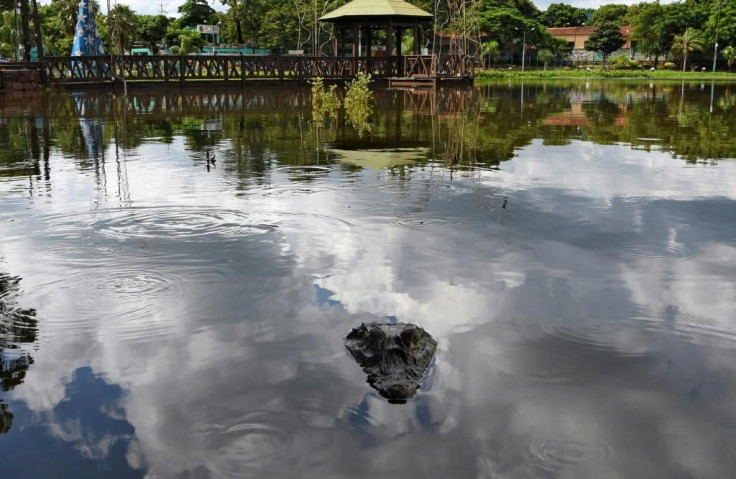3-foot-long alligator-like creature seized at Texas home during drug bust
Officers arrested 44-year-old Jason Best of Kilgore at the scene.
A 3-foot-long alligator-like creature has been seized along with a mix of drugs during a raid at a Texas home.
Rusk County Sheriff's Office and Texas Game Wardens conducted a drug bust Friday after receiving a Crime Stoppers tip about controlled substance distribution and illegal possession of an alligator in Kilgore, Rusk County, according to Fort Worth Star-Telegram.
Upon arriving at the scene, officers found a number of controlled substances, including magic mushrooms, PCP, suspected THC-infused edibles, vape cartridges, a white powdery substance and 1 pound of marijuana, the sheriff's office said. Firearms and money were also discovered at the scene, as per deputies.
The 3-foot-long scaly creature, which officers believe is a caiman, was also captured during the drug bust. Officials said the animal will be relocated to a wildlife rescue in Dallas, the Dallas Morning News reported.
"A crocodilian believed to be a Caiman, approximately three feet in length, was located within the home during the search," Rusk County Sheriff's Office noted in a statement released on Facebook. "Rusk County officials and the City of Kilgore Animal Control officials have made arrangements to have the Caiman relocated to Nature's Edge, a wildlife rescue located in Dallas."
Officers also arrested 44-year-old Jason Best of Kilgore at the scene.
"Best has been charged with a total of four controlled substance felony offenses. Best's bond was set by Justice of the Peace Precinct 5 Jana Enloe for a total of $118,500," the sheriff's office said further.
It was Rusk County Court at Law Judge Chad Dean who issued the controlled substance search warrant that led to the drug raid. Members of the Kilgore Police Department Criminal Investigation Division also provided assistance in the warrant.
Caimans, which are often confused with alligators, are crocodilians or large semi-aquatic predatory reptiles that are endemic in Central and South America. They are said to be "opportunistic feeders" who have wide-ranging diets. They prey on amphibians, small fish, aquatic insects, crustaceans and even snails.
The black caiman, which is known as the largest caiman species, can grow to about 15 feet from tail to snout. Though they can be found along riverbanks and streams, black caimans do especially well in floodplain lakes, wetlands and other flooded environments that are covered with vegetation.
Black caimans are considered dangerous to humans. They were involved in 43 attacks on humans between January 2008 and October 2013, Britannica reported, citing The Worldwide Crocodilian Attack Database. Less than 20% of the said attacks were deadly.

This article is copyrighted by International Business Times, the business news leader





